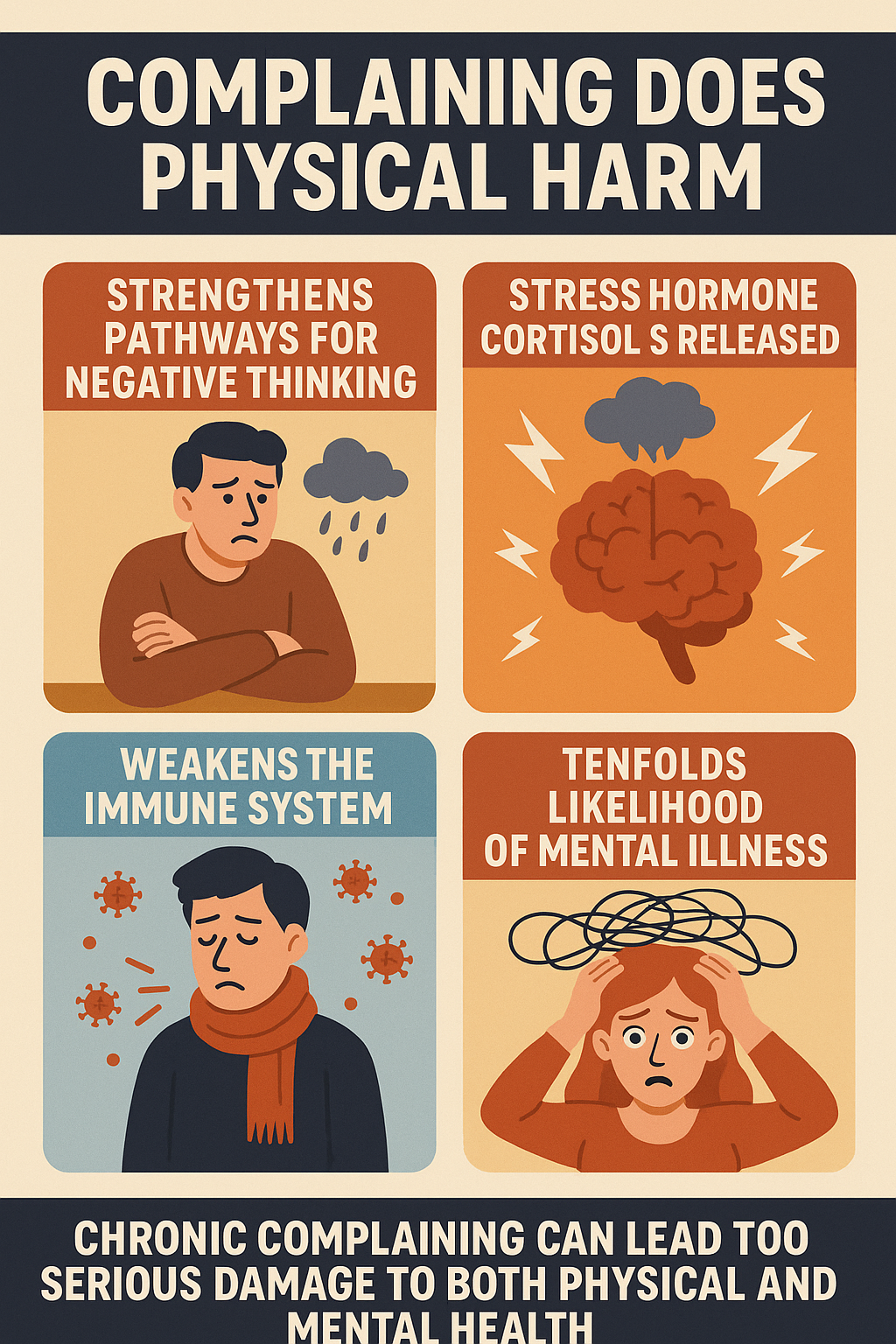There’s powerful message that explains the scientific and neurological dangers of complaining, showing how it affects the brain’s structure, emotional health, and long-term well-being. Here’s a detailed breakdown and summary of the key points:
Complaining Physically Shrinks the Brain
- Research from Stanford University reveals that complaining affects the hippocampus, the part of the brain responsible for:
- Memory
- Learning
- Emotion regulation
- Even just listening to complaints for 30 minutes can cause damage to this vital area.
- Over time, this can lead to:
- Decreased ability to regulate emotions
- Weakened memory
- Higher risk for mental decline and emotional instability
Complaining Triggers Toxic Stress Chemicals
- When you complain, your brain releases cortisol, the stress hormone.
- Cortisol is helpful in short-term danger but harmful when released chronically, such as through habitual complaining.
- Long-term cortisol exposure leads to:
- Brain cell death
- Increased anxiety, stress, and irritability
- Weakened immune system
- Impaired problem-solving abilities
Complaining Rewires the Brain Toward Negativity
- Your brain is like a network of wires—this is called neuroplasticity.
- Each time you think or say something, you activate a neural pathway.
- Repetition strengthens the pathway—like forming a mental habit or rut.
- So, complaining reinforces a “complaining circuit” in the brain.
- The more you complain, the easier it becomes to complain.
- Eventually, your brain defaults to negativity even in neutral or positive situations.
- This turns you into a “negativity machine”—automatically finding flaws, problems, or frustrations without needing a real cause.
Your Brain Starts Seeking Things to Complain About
- Once the complaining circuit is well-built, your brain:
- Scans your environment for problems
- Magnifies minor issues
- Trains your perception to focus on the negative
- You become trapped in a mental loop of dissatisfaction, frustration, and pessimism—even when life is relatively good.
The Implication: Complaining Is Not Harmless
- Many think complaining is just “venting” or being “honest,” but neurologically, it’s like feeding your brain poison in small doses.
- It:
- Erodes relationships
- Kills gratitude
- Creates chronic dissatisfaction
- Weakens cognitive performance
So, Do You Still Want to Complain?
- This is the reflective question posed at the end of the message.
- Knowing that complaining literally shrinks the brain, releases toxic stress chemicals, and programs you to be unhappy, it encourages us to be mindful of how we speak and think.
Takeaway: Choose Gratitude Over Complaining
- If the brain can be rewired toward negativity, it can also be rewired toward positivity.
- Practicing gratitude, solution-focused thinking, and mindfulness builds healthy neural pathways.
- Avoiding chronic complainers, journaling gratitude, and reframing situations helps protect your mind from this toxic spiral.






